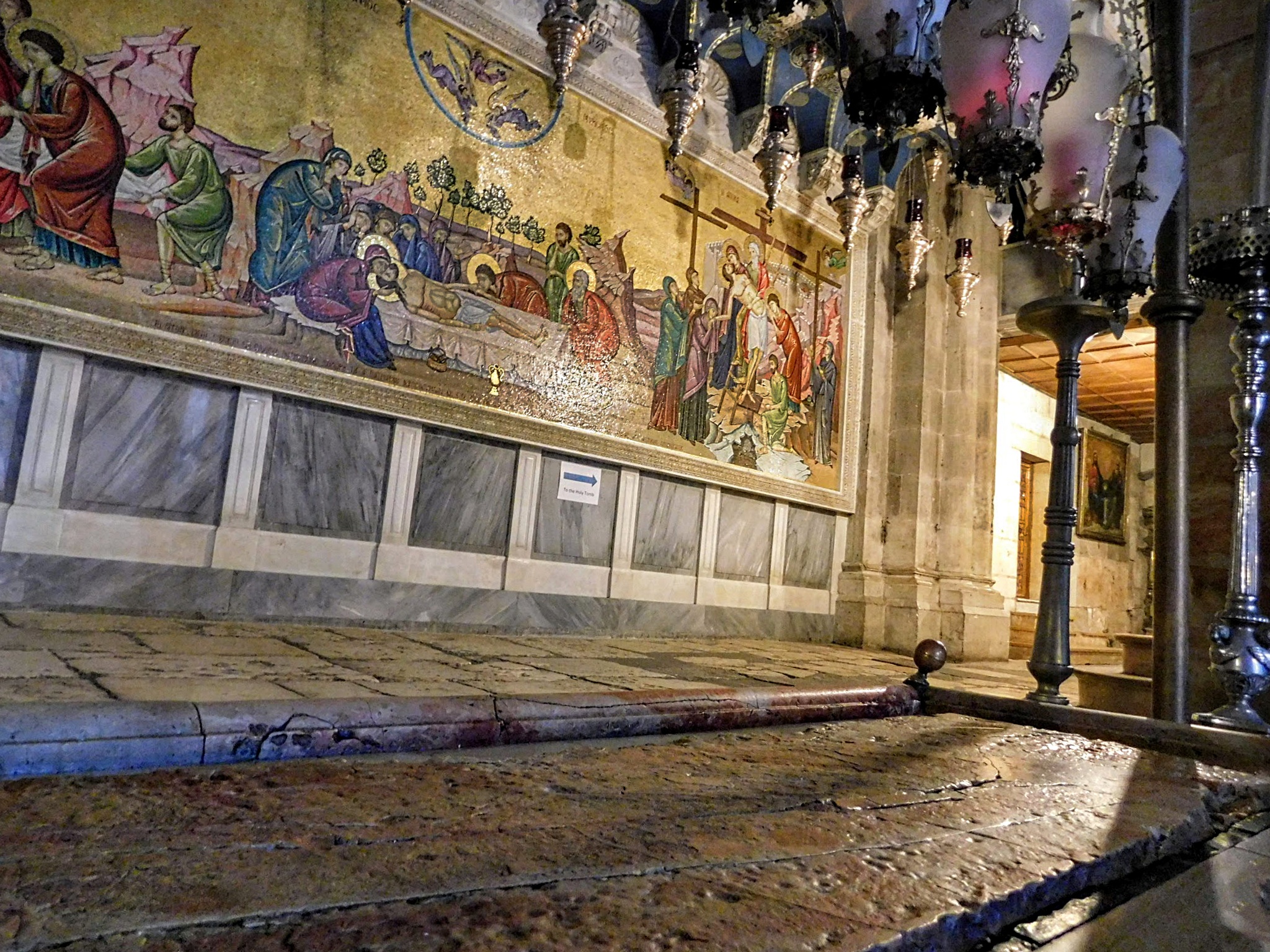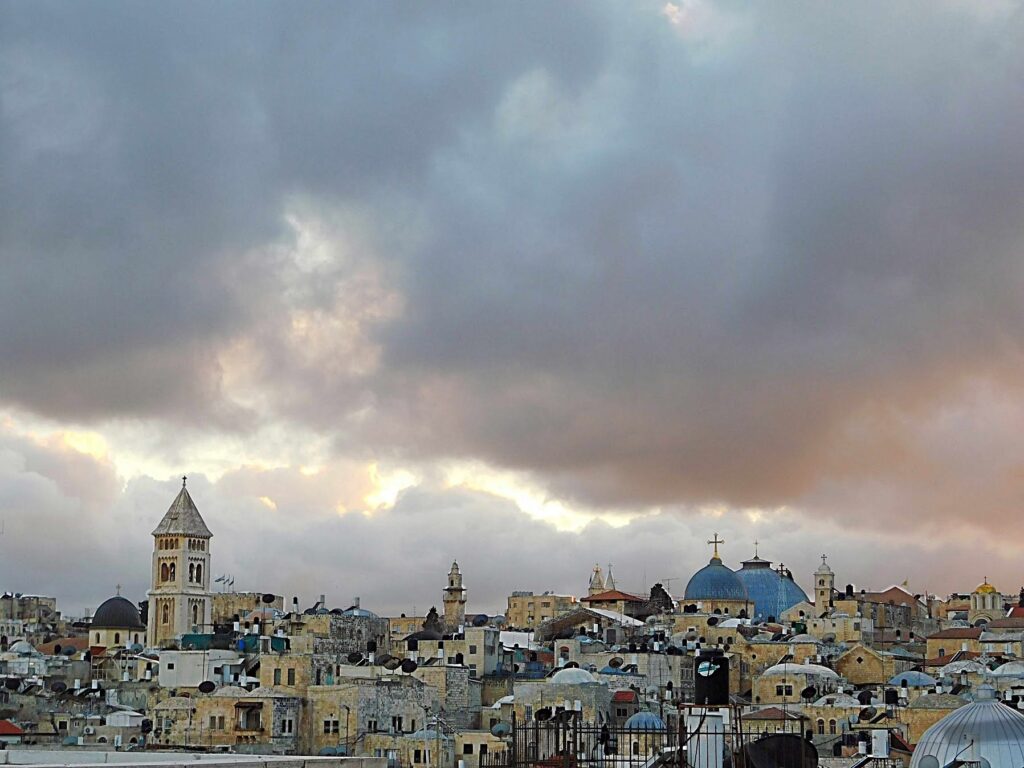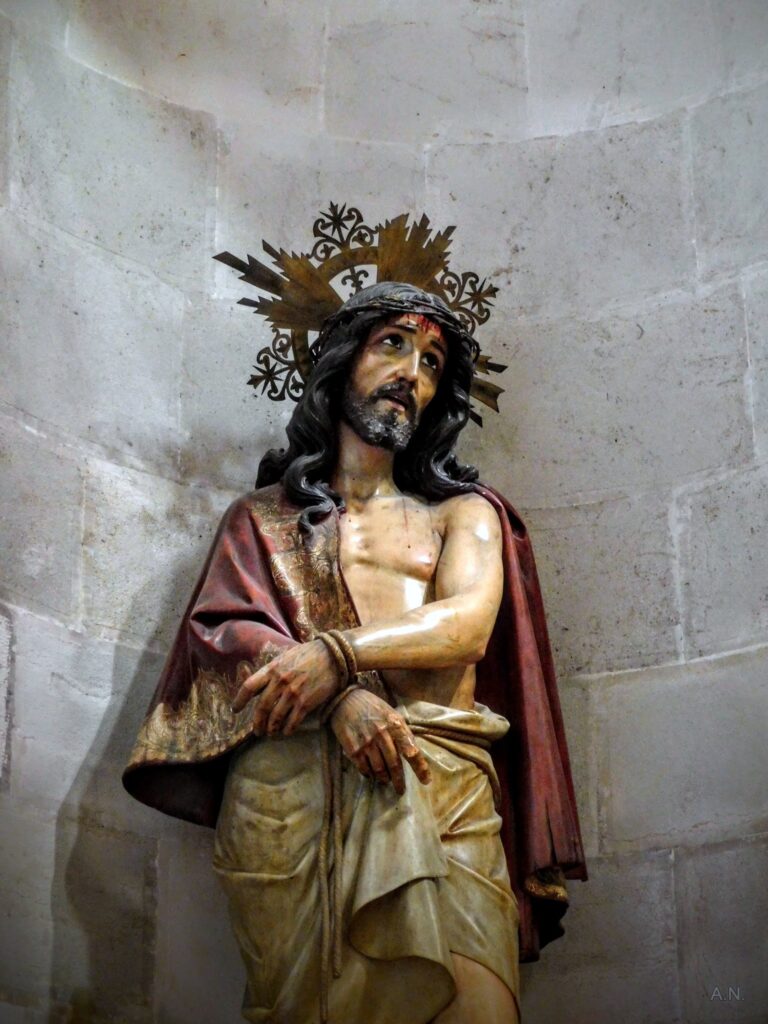TomorrowIsSunday (EN+ES) | What Is Unique About the Description of Jesus’ Passion in the Gospel of Luke?


Holy Sepulchre - Anointment Stone, photo credit, sr. Amata CSFN
Palm Sunday of the Lord’s Passion, Year C
Sunday, April 10h, 2022
Gospel of Luke 22:14 – 23:56
EN https://bible.usccb.org/bible/readings/041022.cfm
You can download the commentary on todays Gospel and beautiful photos from the Holy Land:
https://www.academia.edu/74622713/What_is_the_scandal_of_mercy?source=swp_share
*
Domingo de Ramos, Año C
Domingo, 10 de abril de 2022
Evangelio de Lucas 22,14 – 23,56
ES https://bible.usccb.org/es/bible/lecturas/041022.cfm
1 The Testament of Jesus
The last hours of Jesus’ life are his spiritual testament. All his words and gestures have a special meaning. All the Evangelists describe this moment, and in the Gospel of Luke, which we hear this year, there is something special that is not found in the other Gospels.
2 Key Words
The traitor is not mentioned by name
Unlike all the other Gospel writers, St. Luke does not name the traitor. This can be interpreted timelessly. It could mean that everyone who sins betrays Jesus. At the same time, we know that St. Luke’s Gospel is the Gospel in which Jesus speaks so much about his mercy and forgiveness. From here comes hope for each of us.
The Angel with Jesus in Gethsemane
Only in the Gospel of Luke is it mentioned that an angel accompanied Jesus in Gethsemane, which is later seen in many paintings depicting this scene. The presence of the angel is an expression of the Father’s care. He is with Jesus at the most difficult time of life, just as God has given each of us a Guardian Angel to guard and guide us.
Father, forgive them, for they know not what they do
These words are found only in the Gospel of St. Luke. Jesus thus opens the way of salvation for all sinners, beginning with those who murdered him. Then there is the dialogue with the criminal, who admits his guilt and asks: “Jesus, remember me when you come into your kingdom.” And Jesus answers him: “Truly, I say to you, today with me you will be in paradise.” The King, from his throne on the cross, opens wide the doors of his kingdom to all who ask for mercy.
3 Today
“The account of the Passion in St. Luke is distinctive in that it answers differently the question, ‘Who crucified Jesus?’ It emphasizes the responsibility of all humanity for the death of the Son of God,” note Fr. Przemyslaw Sliwinski and Fr. Marcin Kowalski in their book “Tomorrow is Sunday” (Krakow, Stacja7, 2021). This is well expressed in one of our church hymns: “It was not nails that nailed You, but my sin. It was not people who hurt you, but my sin. It was not the nails that held you, but my sin. Though it happened so long ago, you saw me.”
And in the context of St. Luke’s gospel, which is in a sense a “gospel of mercy,” this has special significance: Jesus gave his life for the sins of each of us, and to each of us he wants to show mercy if we ask him. The Sacrament of Penance is the source of mercy.

Jerusalem-old-city-view, photo credit: sr. Amata CSFN
*
1 El Testamento de Jesús
Las últimas horas de la vida de Jesús son su testamento espiritual. Aquí cada palabra y cada gesto tienen un significado especial. Todos los evangelistas describen este tiempo, y en el Evangelio de San Lucas, que escuchamos este año, hay algo especial que no se encuentra en los otros evangelios.
2 Las palabras clave
El traidor no es mencionado por su nombre
A diferencia de los demás escritores de los Evangelios, San Lucas no nombra al traidor. Esto puede interpretarse de forma intemporal. Podría significar que todo el que peca traiciona a Jesús. Al mismo tiempo, sabemos que el Evangelio de San Lucas es el Evangelio en el que Jesús habla tanto de su misericordia y su perdón. De aquí surge la esperanza para cada uno de nosotros.
El ángel con Jesús en Getsemani
Sólo en el Evangelio de San Lucas se menciona que un ángel acompañó a Jesús a Getsemaní, lo que se ve después en muchos cuadros que representan esta escena. La presencia del ángel es una expresión del cuidado del Padre. Está con Jesús en el momento más difícil de la vida, al igual que Dios nos ha dado a cada uno de nosotros un Ángel custodio para que nos guarde y nos guíe.
Padre, perdónalos, porque no saben lo que hacen
Estas palabras sólo se encuentran en el Evangelio de San Lucas. Jesús abre así el camino de la salvación para todos los pecadores, empezando por los que le asesinaron. Luego está el diálogo con el ladrón que admite su culpabilidad y pide: “Jesús, acuérdate de mí cuando vengas a tu reino”. A lo que Jesús le responde: “En verdad os digo que hoy conmigo estaréis en el paraíso”. Desde su trono, que es la Cruz, el Rey abre de par en par las puertas de su reino a todos los que piden misericordia.
3 Hoy
“El relato de la Pasión en San Lucas se distingue por responder de manera diferente a la pregunta: ¿Quién crucificó a Jesús?. Destaca la responsabilidad de toda la humanidad por la muerte del Hijo de Dios”, señalan Don Przemysław Śliwiński y Don Marcin Kowalski en su libro “Mañana domingo” (Cracovia, Stacja7, 2021). Esto lo expresa muy bien una de nuestras canciones religiosas: “No fueron los clavos los que te clavaron, sino mi pecado. No fue la gente la que te hizo daño, sino mi pecado. No fueron los clavos los que te retuvieron, sino mi pecado. Aunque ocurrió hace tanto tiempo, me viste”.
Y en el contexto del evangelio de San Lucas, que es en cierto sentido un “evangelio de la misericordia”, esto tiene un significado especial: Jesús dio su vida por los pecados de cada uno de nosotros, y con cada uno de nosotros quiere mostrar misericordia si se lo pedimos. El Sacramento de la Penitencia es fuente de misericordia.

Via Dolorosa 3&4, photo credit: sr Amata CSFN
You can read also:
#TomorrowIsSunday | What does Jesus write in the sand? >>>
#TomorrowIsSunday (EN+ES) | What is the scandal of mercy? >>>
#TomorrowIsSunday (EN+ES) | Why Does Jesus Pray? >>>
#TomorrowIsSunday (EN+ES) | What Should One Do when Tempted? >>>
#TomorrowIsSunday (EN+ES) | What Do a Hypocrite and a Mask Have in Common? >>>
#TomorrowIsSunday (EN+ES) | Why should we love our enemies? >>>
#TomorrowIsSunday (EN+ES) | Jesus’ Counsel Regarding Hatred Prompted by Faith >>>
#TomorrowIsSunday (En+ES) | In the Bible, what does it mean to be “fisher of men”? >>>
#TomorrowIsSunday (EN+ES) | Why is Nazareth a Tragic City? >>>
#TomorrowIsSunday (EN+ES) | Who is Theophilus for whom Luke wrote the Gospel? >>>



Dodaj komentarz